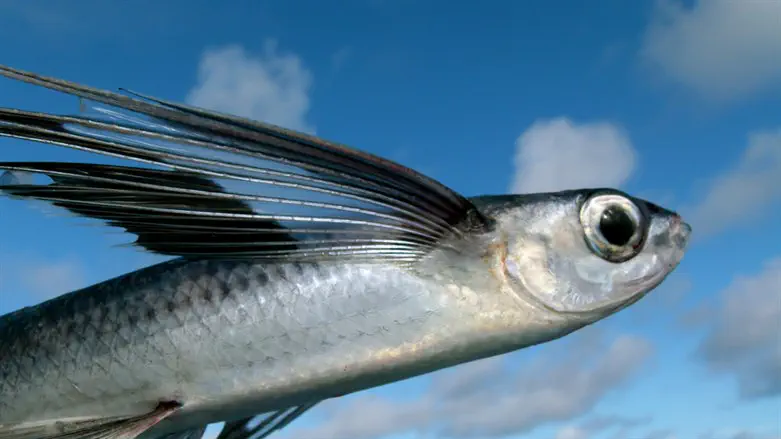
The Blessing to be like Fish
Before passing away, Yaakov blessed Yosef’s sons, Menashe and Ephraim with the blessing Hamalach Hagoel Osi which concludes with the words וידגו לרוב בקרב הארץ, “May they grow into a multitude in the midst of the earth.”
The word וידגו derives from the word דג - fish. Yaakov was blessing Ephraim and Menashe that they should resemble fish.
Our Sages in the Midrash and Talmud, present a number of explanations of the significance of this blessing.
-Following the literal meaning of the verse, Yaakov was blessing them that they be fruitful and multiply like fish.
-Further, being submerged under water, fish are immune to Ayin Hara, the evil eye, which cannot rule over things that are hidden. After this blessing, Yosef’s descendants were known to be immune to the Ayin Hara and had no reason to fear it.
These explanations fit with the blessing that Yaakov gives Yosef later in the Parsha בן פורת יוסף בן פורת עלי עין, “A charming son is Yosef, a charming son upon the eye”. The Talmud teaches that the word עלי should be read as עולי, meaning that Yosef rises above “the eye”. In addition to beauty or charm, the word פורת can also mean to be fruitful, deriving from the word פרי.
Rabbi Levi Yitzchak of Berditchev, in his famed work Kedushas Levi, shares a deeper insight on the significance of the blessing to be like fish.
The word דג is made up of the letters Dalet and Gimmel. The Talmud teaches that the word Dalet means to be impoverished. Gimmel on the other hand means to be a benefactor. Dalet represents a state of lowliness and suffering. As the benefactor, Gimmel represents a source of blessing, success and good fortune.
In the Hebrew alphabet, Gimmel precedes Dalet. But in the word דג, the letters are reversed.
When Yaakov blessed Ephraim and Menashe to be like fish, he was blessing them with the sequence of the letters in the word דג; that when they inevitably face hardship and suffering, they should merit to see it transformed and followed by greater goodness and to then understand how their challenges were what led to this greater goodness and success.
This blessing is especially connected to Ephraim and Menashe, whose names reflect the life experience of their father Yosef.
Yosef named his firstborn son Menashe, saying that “G-d has caused me to forget… my father’s house”. This name embodied Yosef’s pain and his years of suffering, having been sold as a slave and finding himself in a land far away from his father’s home.
His second son was named Ephraim, “because G-d has made me fruitful in the land of suffering”. In giving this name, Yosef recognised that his suffering was part of a plan that ultimately brought him to tremendous success and accomplishment. Had he not been sold into slavery and later ended up in prison, he would not have become viceroy of Egypt and would not have been able to save his family.
Each of the 12 months of the year corresponds to one of the 12 Tribes. The month of Adar corresponds to the Tribe of Yosef. Just as Yosef is divided into the two tribes of Ephraim and Menashe, in a leap year there are two Adars. The zodiac sign for the month of Adar is Mazal Dagim (Pisces).
Like the word דג, the beginning of the month of Adar was negative, as the Jewish people in the Persian empire faced the threat of annihilation under Haman’s decree. But in the middle of the month, their fortune changed. They defeated their enemies, and the festival of Purim was established, transforming the month of Adar “from anguish to joy and from mourning to a festival.”
The blessing that Yaakov gave to Ephraim and Menashe to be like fish, was a blessing to every Jew. We specifically bless our children to be like Ephraim and Menashe and we bless them with the words of Hamalach Hagoel Osi, that they too be like fish.
The blessing is a message of hope and strength for when we face both the personal challenges in our lives as well as our national, collective suffering as a people in exile.
As real and painful as the hardship and suffering is, we are blessed with faith, resilience and optimism, knowing that from the Dalet we will come to the Gimmel. We will emerge from our darkness to greater light, strength and growth and see a brighter future.
Like this week where we go immediately from the fast of the 10th of Teves into Shabbos, we will triumph over our enemies and we will emerge from the darkness of exile to the light of Geulah and the ultimate and everlasting Shabbos.